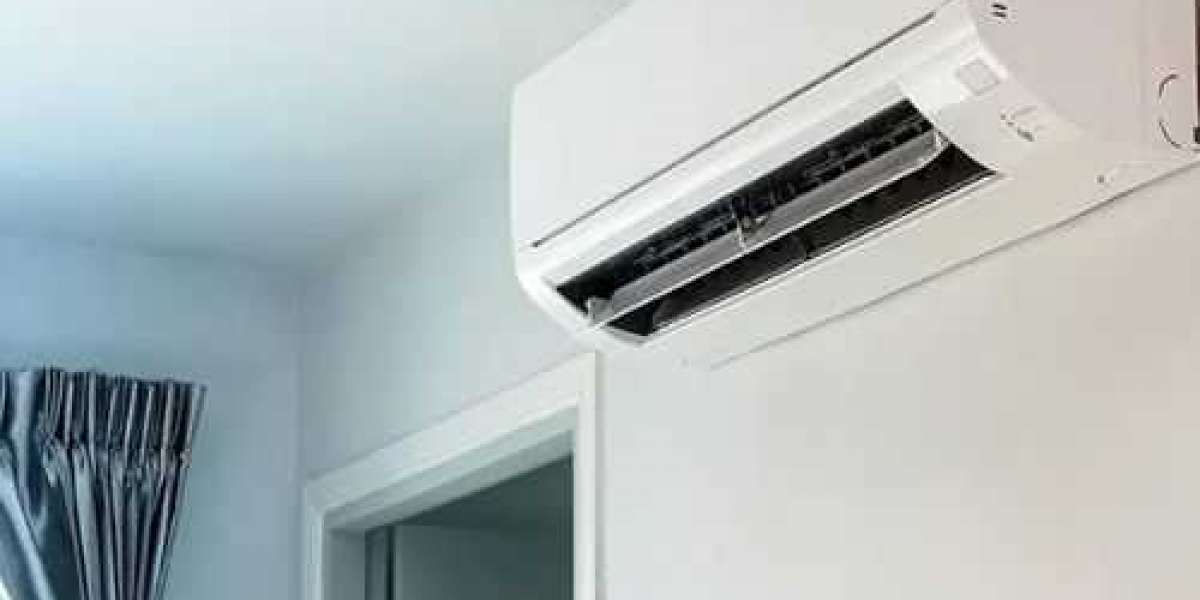Air conditioners are essential for maintaining comfort in our homes, especially during the hot summer months. However, like any complex system, AC units require regular care and maintenance to ensure they run efficiently. Neglecting routine maintenance can lead to reduced performance, higher energy bills, and ultimately, costly repairs. One of the most effective ways to avoid expensive AC repairs is through regular upkeep, which includes simple tasks such as cleaning the air filter and checking vital components for wear and tear. For instance, regularly replacing or cleaning your AC air filter can enhance airflow, improve indoor air quality, and prevent unnecessary strain on the system, ultimately extending its lifespan.
Maintaining your AC system can also help you avoid the need for expensive replacements of AC spare parts. Regular inspections and cleaning can detect issues early, which means you’re less likely to need repairs from your local air conditioner spare parts shop. Additionally, addressing minor issues promptly, such as replacing a dirty or clogged filter, can prevent more severe damage to internal components like the compressor or evaporator coils. By prioritizing basic maintenance and addressing issues as they arise, homeowners can enjoy a longer-lasting, more efficient air conditioning system, saving money in the long run.
Here are some of the ways to avoid costly AC repairs with proper maintenance:
1. Filter cleaning
Filters are very important because that is the first or initial component of the AC system; they trap dust, dirt, and all other particles and prevent them from entering the air ducts and propagating to the air conditioner, and it just reduces efficiency. But over a period of time, it gets clogged and restricts airflow. The moment that happens, the air conditioner has to work more to spare the air. This goes without saying that energy is increased if they are reduced because airflow reduces cooling as much as 5-15 percent in certain conditions.
To avoid this, cleaning or replacing filters is very vital. Most filters from residential systems should be checked once per month during those active consumption months. Depending on the filter, cleaning may be all that's necessary, but if disposable types are your go-to, every 3-6 months is sufficient. Keeping clean filters definitely will allow air in, resulting in efficient cooling, which leads to good indoor air quality.
2. Cleaning Vents
Your AC ducts typically are very dusty and dirty, because they obstruct the flow of air inside and are detrimental to the efficiency of the entire system. The uneven cooling is gradually created as some part is cooler than others due to blocked vents. Regular vacuuming of your vents will help create that efficient airflow. Also ensure that it is not blocked by any furniture, curtain, or other materials: the more unobstructed the vents are, the more distributed cool air will be in your space.
Regular cleaning of vents helps to improve indoor air quality, as dust and allergens that settle in vents will eventually end up being released into your living areas. Proper airflow would reduce strain on the AC system, which would, in turn, help to avoid costly repairs.
3. Coil Cleaning of the Condenser and Evaporator
An air conditioning system is composed of condenser coils and evaporator coils that absorb and release heat thereby helping cooling take place. These coils, however, accumulate dirt, dust, grime, and debris over time and inhibit performance. If the coils are dirty, they will not effectively transfer heat, thus reducing their effectiveness in cooling your home.
This cleaning must form part of your regular maintenance checks for an air conditioning system to avoid any inefficiency. While some DIY techniques offer a few benefits in cleaning misleading condenser coils, the evaporator coils may need to be fully brought up to professional cleaning standards since they usually set in air handlers. Regular cleaning prevents the coils from freezing or getting damaged, which will eventually cost highly for repairs.
4. Refrigerant Level Checks
The air in your air conditioning is cooled by refrigerant. The evaporator and condenser coils can let heat in from the indoor air to the outside. But, if the refrigerant levels are low, then your AC will have a hard time cooling the home. Low refrigerant can cause your system to perform poorly. It can also cause damage to the compressor, which is the most expensive component of your AC system.
If you suspect your refrigerant levels to be low, then it is best to call a professional technician. These are the ones who have the right tools and expertise in checking and adjusting the refrigerant levels in the AC system. Besides, a technician can check for possible refrigerant leaks that may cause the depletion. Proper refrigerant levels will help the AC operate efficiently and score long-term damage costs on the compressor.
5. Inspecting Ducting
Cool air is distributed into your home via ducting. If your ducts are blocked or have leaks, you will not be able to enjoy all the benefits that come with efficient air conditioning. Air leaks can cause uneven cooling in the space and at the same time be a source of high electric bills, as cool air will lose its way toward the intended destination. Also, dust and dirt can build up in the duct, which blocks airflow and thereby causing inefficiency.
Ducts should be inspected from time to time, along with cleaning them at intervals of a few years. Especially in such cases when it seems there is an accumulation of dust around the vents or when there is poor airflow. If there are any leaks up in the ducts, cool air will not escape and thus reduce the load on an air-conditioning system. While sealing and cleaning ducts would ensure that your system works well, unnecessary repairs that are too early can also be prevented, as would wasting energy.
6. Scheduling Professional Maintenance
Even though you may clean the air conditioning system even at home, it highly needs outside maintenance service at least once every year, probably in spring, before the high cooling season. The professional technician will conduct an in-depth inspection of the system for future possible breakdowns. A this preventive maintenance could include cleaning coils, refrigerant level checks, duct inspection, moving-part lubrication and thermostat calibration.
Scheduling professional maintenance makes your AC run efficiently, early detection, and thus costly repairs avoided. In addition, most manufacturers require regular professional maintenance for validation of warranties.
Conclusion
The air conditioner is to be maintained regularly for avoiding costly repairs as well as ensuring long-term functionality. Notably, replacing the AC air filter from time to time is one of those small undertakings that undoubtedly contributes to the overall performance capability of your AC unit. The clean filter not only has an improved airflow system but also does reduce the stress on the system due to which the AC works more efficiently to keep the costs low for energy consumption. Fixing those daily small things can prevent incurring an expensive repair cost that may involve replacement of key AC spare parts.
On the flip side, timely maintenance will prevent the unnecessary visits to the air conditioner spare parts shop, thereby saving time as well as money. Day to day inspections will allow the noticing of the problems and sorting them before it gets worse; preventing failure on key components such as the compressor, evaporator coils, or refrigerant levels. Proper care for the longevity of your AC will ensure that you can have a comfortable home, while not bearing a financial burden of high repair bills and part replacements.







